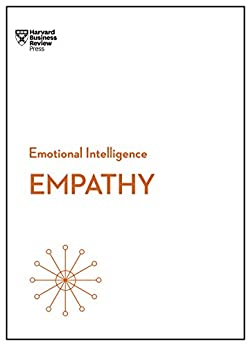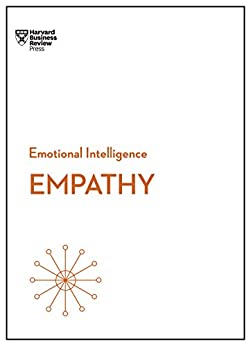Convinced of the value of empathy, and determined to cultivate and leverage this quality that I thought I possessed, at some level at least, I bought the little book « Empathy » published in 2017 by the Harvard Business Review Press. It is a collection of articles published in the Harvard Business Review, written by different authors.
The first « chapter » is by Daniel Goleman, related in my mind with those huge piles of books about EQ (Emotional Intelligence) that I still visualize, in my memories, at the VIPS at Callao in Madrid where I lived at the time of its release (1995).
In this text, he defines the « triad of empathy« , i.e. 3 kinds of empathies, all three required in order to be a « good » leader.
First of all, the cognitive empathy: the ability to understand another person’s perspective; it allows the leader to express himself in a way that is understood by others, especially his teams. But it does not require to feel what the other feels, contrary to the meaning we tend to give to empathy.
This meaning, in fact, is that of the emotional empathy: the ability to feel what someone else feels. This empathy comes from the part of the brain that allows us to feel things quickly, without thinking things through; like a radio, it allows us to put ourselves on the same wavelength as our interlocutors, and is used to connect with a client, and to understand his expectations, or in a mentoring situation.
Finally, there is the empathic concern: the ability to sense what another person needs from me. Close to emotional empathy, we expect it from the doctor, the parent or the partner. And if possible from our boss… However, it has been observed that when a professional climbs up the hierarchical ladder, he tends to distance himself, to detach himself from others, to lose his interpersonal relationships: this empathy is difficult to balance between the fact of feeling what the other feels (suffering and need for compassion in the case of a doctor and a patient, for example) to the point of exhaustion, and the protective posture in the face of these emotions to the point of losing all empathy.
So, can « good empathy » be learned?
We need to develop our ability to both see from the point of view of others and to detach ourselves from our feelings so as not to « get lost » in them. This means being able to move from a heart-to-heart connection (emotional empathy) to a head-to-heart connection (cognitive empathy). Awareness of these different types of empathy is the first step towards their control…

To date, I have marginally addressed this notion of empathy in a « Management and Leadership » module of my « Project Team Management » course, but I have the feeling that it could be developed in team management courses in the broadest sense. Do you think it would be interesting?
You can contribute to my reflection on the courses I give by taking 2 min, if you haven’t already done so, to answer the 5 questions on https://forms.gle/xN4zJB6oBYsfC1G49. Thank you!

No responses yet